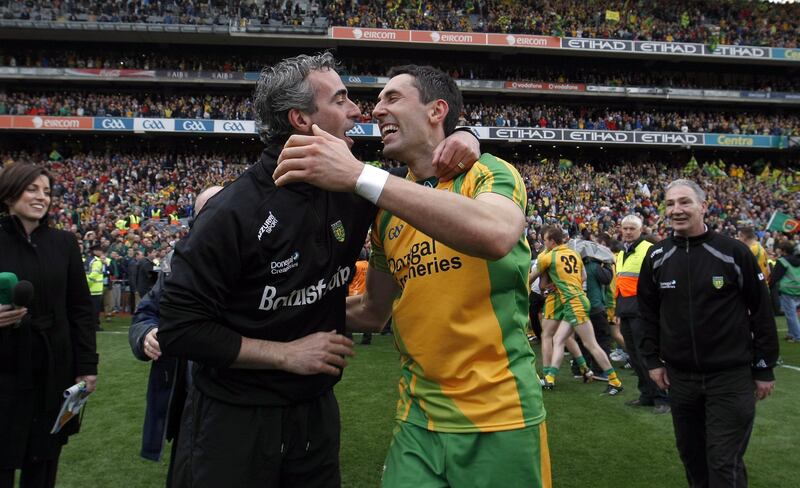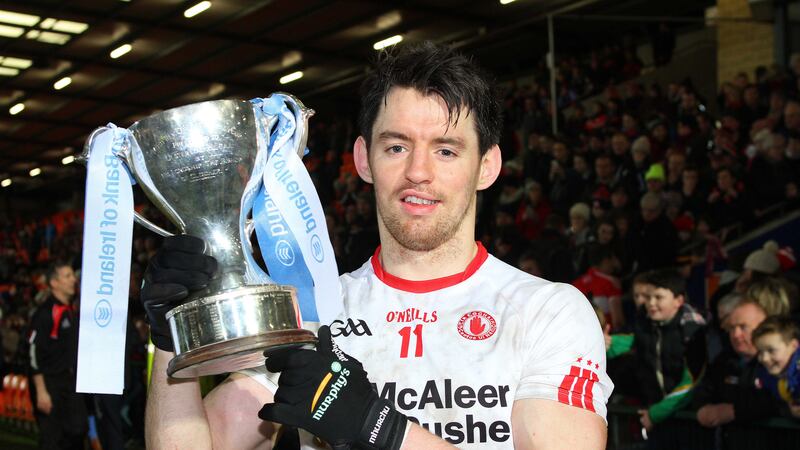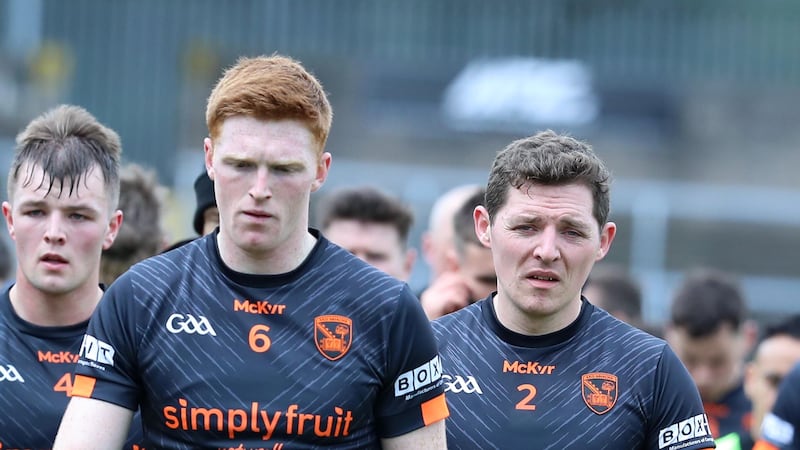THE Dr McKenna Cup finally gets under way at the weekend and, for many supporters, the season starting is their Christmas Eve, New Year and Easter all rolled into one.
In years gone by, the Dr McKenna Cup was a warm-up competition. New players invited onto the training panel were trialled and players who barely got a look in the previous year are given an opportunity to make an impression.
In 2008, Down headed to the Algarve in Portugal on New Year’s Day for a five-day training camp. It was a memorable experience, brilliantly organised by the management and training team at the time.
You lived, ate and trained like a professional. By February, we had won our National League games, played and secured the McKenna Cup for the first time in almost 10 years. Come the Championship in May, we beat Tyrone in a memorable replay in Newry, although they did go on to win the All-Ireland the same year. I believe, in hindsight, 2008 was a huge opportunity missed, as a team, to win an Ulster title.
When training camps were first flirted with by Armagh in 2002 - made famous by the team travelling to La Manga in Spain - I recall the county were ridiculed from all corners of the GAA fraternity.
The Orchard men travelled in April/ May time as I recall and the timing was considered particularly relevant as the Championship was starting in May. The ultimate result of this preparation was an Ulster and All-Ireland title. 120 years of losing, being beaten finalists and being known as a team of ‘also rans’ had been consigned to history.
They had delivered. After that, county teams all over the country started to follow suit. This was even expanded on to include training weekends organised at intermittent periods during the year.
When I hear about and observe a county team collectively training five or six nights during the week, I begin to ask myself if this is really necessary. An inter-county player serious about his football should be able to fulfil the strength and conditioning demands of a modern player himself. This will enable the player to dictate his own time for attending the gym.
Collective training three times a week should be ample time for a team to be ready for a National League and Championship. The training weekends or training camps is where the huge gains for a county team can be amassed in my view.
A long weekend spent training, eating well and analysing games and matches can be as good, if not better, than months and months of weekly preparation. I was lucky in my time that these training camps were staged at five-star resorts like the City West Hotel and Carton House. And while I only enjoyed one foreign training camp - in 2008 - the regret was that this was never done again, organised for April/May in the calendar year.

Kerry, Mayo and Dublin now annually travel to foreign climes pre-Championship to train. Jim McGuinness made this a fundamental element of Donegal’s preparations during his tenure. When you look at Kerry’s preparation for the Munster Championship, they could easily delay lifting the intensity of training sessions until May each year. The same could be said of Dublin in Leinster, while Mayo are slowly being reeled in a bit in Connacht by Galway and Roscommon.
In Ulster though, this is unheard of. Usually by mid-January the players are already at ‘Defcon Two’ in preparation for the National League. Every game now is scrutinised to the millisecond. Lose a few games as a manager and you are immediately under pressure.
While mid-season sackings or resignations are unheard of now, watch this space. You will find these will become increasingly more prevalent. Division Two in 2017 will be a mini-Ulster Championship. As Armagh will already testify, the margins between staying up and going down may well be dictated by scoring difference.
I see no reason why this is going to be any different this year. While the gap between divisions one and two of the league seem to grow annually, it appears from last year’s Championship results that little separates the second and third division of the leagues.
The McKenna Cup may well be an opportunity to ‘blood’ new players, but in a time when winning matches has become much more important in secondary competitions, the opportunities being afforded to newly promoted club players at county level is being relegated to challenge matches.
The challenges being presented by a season of new rule changes will mean that managers will be keen for ‘established’ players to become accustomed to the practicalities of the game.
Relegation from a division is never a disaster, but it can certainly have a psychological effect on the team, as demonstrated by Armagh last year. The relegation in 2016 was followed up by a disastrous Championship, made worse by losing twice to Laois.
A promotion from the league in whatever division can galvanise a squad and project a strong sense of positivity into any Championship campaign. Given that Tyrone reenter the top division, they will be keener than most to be ready for the 2017 National League.
People forget that there was a time when the Tyrone players would play for their universities. They opt now to represent Tyrone in the same competition. Why? The bigger picture means that they will want to nail down a place on the starting 15 in February.
They are unwilling to take the chance that some young pretender will make an impression in their absence and they will miss out. Most university team managers will end up picking them for the first 15 come the Sigerson Cup anyway.
The appetite for Gaelic Games this weekend will not be diminished by weather or the January sales. You will be guaranteed that the loyal supporters of all counties will be out in full force and supporting the team. This, after all, is the promise of a new start. For the optimist, 2017 could well be their year.
My first prediction for the year? Tyrone to win the Dr McKenna Cup.







